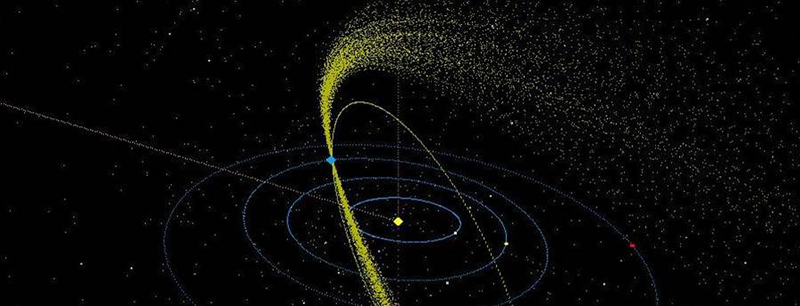Go out to a field on a dark night, far away from city lights, and you might just see a shooting star. A single meteor is just a tiny fraction of all the space dust that hits our atmosphere every day; most of it goes completely unnoticed. To get a better idea of where these meteoroids come from, [Dario] and [Denis] have come up with a network of meteor-detecting ground stations to search for these extraterrestrial visitors and make it possible to retrieve the largest of these fallen stars.
This project started at the Croatian Meteor Network, a team with about two dozen surveillance cameras pointed skyward as an unblinking eye, looking for meteoroids entering the Earth’s atmosphere over the Balkans and the Adriatic sea. When two cameras detect a meteor, the path it came from – and its orbit around the Sun – can be computed. The team has already found a possible new meteor shower (PDF) that is active from late August to the middle of September.
With hundreds of cameras scattered around the globe, it’s possible to triangulate the position of these meteors and their orbit around the Sun, just like what was done with the innumerable Russian dash cams after the Chelyabinsk meteor. It’s a great project, and also one that requires a lot of computer image processing – a favorite around these parts.





















Well that’s really cool!
Brian I hit a few typos: “…dust that hits out atmosphere…”, and “…skyward as a unblinking eye…” These should be “our” and “an.” Other than that, awesome article.
It would be interesting to incorporate an RF sensing system that detected the ionization trail left behind by the meteors.
This method detects meteors during the day as well as at night.
Communications by meteor scatter is one of the more interesting aspects of ham radio.
This is something I still would like to try. I have a few RTL dongles lying around that need to be repurposed.
Communications by meteor scatter- looked it up. Absolutely unreal. I had no idea that was even possible!
Amazing what resources people have learned to exploit for science. Would never have guessed in a million
years you could even do that- mind blown